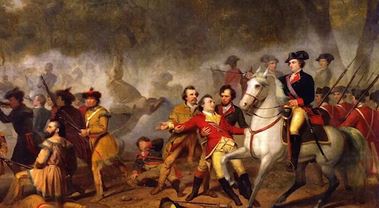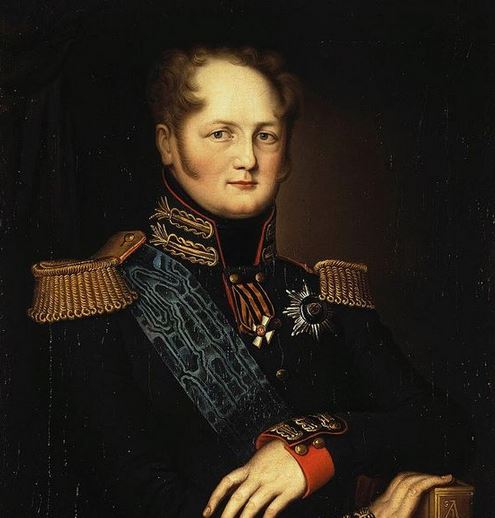Alexander I, born on December 23, 1777, in Saint Petersburg, ruled as Emperor of Russia from 1801 to 1825. His reign is most famously associated with the defeat of Napoleon Bonaparte, but it also marked significant internal reforms and efforts to modernize Russia. The complexities of Alexander I’s character, his political maneuvers, and the challenges he faced during his reign have made him one of the most intriguing figures in Russian history.
Early Life and Ascension to the Throne
Born to Grand Duke Paul Petrovich (later Emperor Paul I) and Maria Feodorovna, Alexander’s upbringing was largely overseen by his grandmother, Empress Catherine the Great. Catherine had high hopes for Alexander, viewing him as a future ruler who would carry forward her vision of enlightened absolutism. She ensured he received a broad education, emphasizing philosophy, politics, and Western European culture.
However, the relationship between Alexander and his father was strained. Paul I, known for his autocratic tendencies, clashed with many in the Russian nobility. This conflict culminated in Paul’s assassination in 1801, an event that brought the 23-year-old Alexander to the throne under difficult and suspicious circumstances.
The Early Reforms of Alexander I
When Alexander I became emperor, he initially portrayed himself as a reformer. Influenced by Enlightenment ideals, he surrounded himself with progressive advisors like Mikhail Speransky, who helped shape his early policies. Speransky’s reforms sought to modernize Russia’s legal and administrative systems, aiming to centralize power while introducing a constitutional monarchy—a radical idea for Russia at the time.
One of Alexander’s first acts as emperor was to reverse some of the unpopular policies of his father, Paul I. He restored privileges to the nobility, reformed the education system, and expressed a desire to abolish serfdom, though this goal would prove difficult to achieve in practice.
However, Alexander’s enthusiasm for reform eventually waned. By 1810, he began distancing himself from Speransky, and the progressive changes were slowed, particularly as international tensions with Napoleon’s France grew.

Napoleon and the War of 1812
The defining event of Alexander I’s reign was his conflict with Napoleon Bonaparte. The relationship between the two leaders was complex. Initially, they formed an alliance with the signing of the Treaty of Tilsit in 1807. Napoleon and Alexander had even met in person, and their discussions suggested mutual respect, but beneath the surface, tensions were brewing.
Napoleon’s expansionist ambitions in Europe, coupled with Russia’s economic and political concerns, made the alliance fragile. By 1812, the relationship had deteriorated to the point of war. Napoleon’s invasion of Russia, known as the Patriotic War of 1812, was a turning point not only for Russia but for Europe.
Alexander adopted a defensive strategy, allowing Napoleon’s Grand Army to advance deep into Russia. The Russian forces avoided major confrontations until they reached Moscow, where they engaged in the brutal Battle of Borodino. Although Napoleon captured Moscow, the Russian army’s tactics, including scorched-earth strategies and attrition warfare, severely weakened Napoleon’s forces.
The winter of 1812 further decimated Napoleon’s army, and the Russian victory became a symbol of national pride. After the retreat of French forces, Alexander I joined the Sixth Coalition, which eventually led to Napoleon’s defeat in 1814. Alexander was celebrated as a liberator of Europe, and his influence at the Congress of Vienna in 1815 helped shape post-Napoleonic Europe.
The Congress of Vienna and Alexander’s Role in Europe
Following Napoleon’s defeat, Alexander I played a leading role in the Congress of Vienna, a gathering of European powers aimed at restoring stability after the Napoleonic Wars. The Congress sought to establish a balance of power and prevent future revolutions that could destabilize the continent.
Alexander, often described as a “mystic idealist,” envisioned a new Europe based on Christian principles of peace and cooperation. He was a key figure in the formation of the Holy Alliance between Russia, Austria, and Prussia, which aimed to preserve the conservative monarchies and prevent the spread of liberal revolutions.
While the Holy Alliance had noble aspirations, its policies were often seen as reactionary, particularly in suppressing nationalist and liberal movements across Europe. Alexander’s vision of a united, peaceful Europe under Christian monarchies faced many challenges, particularly as revolutionary ideas continued to spread.
Internal Challenges and Alexander’s Later Reign
Despite his international successes, Alexander I faced increasing internal problems. His early reforms had raised hopes for greater freedoms, but his later reign was marked by conservatism and a retreat from the liberal ideals of his youth.
One of the major issues that plagued Russia during Alexander’s reign was the question of serfdom. Although Alexander had spoken against serfdom, he was unable to implement any significant changes. The Russian economy was deeply dependent on the labor of serfs, and the nobility, who were the primary landowners, resisted any attempts at reform. This failure would haunt Russia for decades to come, leading to growing discontent among the lower classes.
Additionally, Alexander’s relationship with the Russian nobility became strained. Many of the aristocrats had hoped for a constitution or more power for the Duma (Russia’s legislative assembly). However, Alexander’s fears of revolutionary unrest led him to take a more authoritarian stance. By the 1820s, his government was more focused on maintaining order than pursuing progressive reforms.
Personal Struggles and Mysticism
Alexander I’s personal life was marked by inner conflict. He was deeply religious and increasingly turned to mysticism in his later years. His faith played a significant role in shaping his foreign policy, particularly his desire for a Christian-based European alliance. This mystical and spiritual outlook made him difficult to predict as a ruler.
Alexander was also deeply affected by personal tragedies, including the death of his wife, Empress Elizabeth, in 1825. These losses, combined with the burdens of ruling a vast and increasingly restless empire, led to rumors that he considered abdication.
Mysterious Death and the “Legend of Alexander I”
Alexander I’s death in November 1825 in the city of Taganrog, while on a trip to southern Russia, was sudden and somewhat mysterious. Officially, he died of typhus or pneumonia, but his unexpected demise gave rise to numerous rumors. Some believed that he had faked his death and retired to a life of solitude as a monk. These rumors persisted for decades and became part of Russian folklore.
The idea that Alexander had chosen to live in obscurity rather than continue his reign reflected the deep contradictions in his character. He was both an idealistic reformer and a conservative ruler, a victorious leader in war and a troubled, mystical figure in private.
Legacy of Alexander I
Alexander I’s reign was a pivotal period in Russian and European history. He is remembered most for his role in defeating Napoleon and for his influence at the Congress of Vienna, which shaped the political landscape of Europe for much of the 19th century.
However, his legacy within Russia is more mixed. His early promise of reform was not fully realized, and his failure to address the issue of serfdom contributed to growing social unrest. Nonetheless, Alexander is seen as a ruler who strove for a balance between modernization and tradition, albeit with limited success.
His reign set the stage for the complex and often tumultuous history of Russia in the 19th century, as the empire struggled to reconcile its desire for progress with its deep-rooted autocratic traditions.
Key Achievements of Alexander I
- Defeat of Napoleon: Alexander I played a crucial role in the coalition that defeated Napoleon and liberated Europe from French domination.
- Congress of Vienna: He helped shape post-Napoleonic Europe and establish a balance of power that aimed to maintain peace on the continent.
- Early Reforms: His initial policies aimed at modernizing Russia’s administration, education, and legal system.
- Holy Alliance: Alexander’s vision of Christian unity and cooperation led to the creation of the Holy Alliance, though its conservative stance drew criticism.
A Complex and Enigmatic Leader
Alexander I remains one of the most complex figures in Russian history. His reign encompassed a wide range of events, from military triumphs and diplomatic successes to missed opportunities for reform. His legacy is one of contradictions—an idealist caught between the need for change and the desire to preserve tradition.
The world remembers Alexander I as the emperor who defeated one of history’s greatest military leaders, but within Russia, his reign is also seen as a period of lost potential. Nonetheless, Alexander’s impact on both Russian and European history is undeniable, making him a central figure in the story of 19th-century geopolitics.




